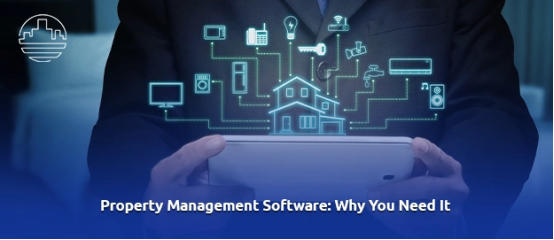How to Select the Best Property Management Software for Your Business
Property management software (PMS) has rapidly become a vital solution for streamlining day-to-day tasks in the real estate and hospitality industries. These platforms bring structure and efficiency to operations such as rent collection, lease tracking, tenant communication, maintenance requests, and accounting—by consolidating everything into one digital system.
Property management software (PMS) has rapidly become a vital solution for streamlining day-to-day tasks in the real estate and hospitality industries. These platforms bring structure and efficiency to operations such as rent collection, lease tracking, tenant communication, maintenance requests, and accounting—by consolidating everything into one digital system.

With manual processes prone to error and inefficiencies, businesses are turning to PMS solutions to simplify workflows, enhance accuracy, and boost productivity. These systems act as digital command centres that help property managers handle large volumes of data and repetitive tasks with greater ease.
Key Considerations When Choosing a Property Management System
Selecting the right PMS means evaluating not just features, but how well the system fits your company’s current and future needs. Here are the most important factors to assess:
1. Define Your Operational Requirements
Before exploring specific software options, begin by clarifying what you need the system to handle. Consider:
Are you overseeing residential, commercial, or mixed-use properties?
Do you need automated rent processing, maintenance tracking, financial reporting, or all of the above?
Is your business expanding, and will the system scale accordingly?
Understanding these needs up front will help you shortlist software that aligns with your business model and workflow.
2. Prioritise Data Security
One of the major benefits of using PMS tools is securing sensitive information. From tenant data and financial records to service logs, your system must offer:
End-to-end encryption
Regular cloud backups
Role-based access controls
Multi-factor authentication
A dependable platform will not only protect your data but also ensure compliance with relevant privacy laws.
3. Consider Ease of Billing and Payment Handling
Industries like hospitality and residential leasing process frequent, high-volume transactions. PMS platforms should support automated invoicing, payment reminders, and reconciliation to reduce manual work and human error. The billing interface should be user-friendly and efficient, not overly complex.
4. Go for Easy Setup and Intuitive Design
Quick implementation is a major advantage. The ideal PMS should integrate seamlessly with your current systems, require minimal training, and offer a clean, intuitive interface that makes it easy for staff in different departments—such as admin, accounting, and maintenance—to get onboard quickly.
Features to Look for in Property Management Software
A modern PMS should offer core functionalities that streamline every aspect of property operations. Essential features include:
Automated Rent Collection: Schedule payments, send reminders, and track incoming/outstanding rent effortlessly.
Tenant Communication Tools: Send automated updates for lease renewals, maintenance schedules, or payment notices to improve responsiveness and transparency.
Built-in Financial Tools: Generate real-time reports, manage budgets, and handle reconciliation from a central dashboard.
What Does Custom PMS Development Cost?
If off-the-shelf solutions don’t meet your exact needs, developing a bespoke property management system is an option. Costs can range from $40,000 to $250,000, depending on factors such as:
Feature complexity and system scope
UX/UI design quality
Technology stack used
Developer location and hourly rates
Although it’s a significant investment, a custom-built PMS offers precise control and the flexibility to meet your unique operational demands.
Top Property Management Software Options
Here are some trusted platforms commonly used across the real estate, hospitality, and leasing sectors:
Rent Manager – Robust tools for full-spectrum property oversight
Guesty – Ideal for vacation and short-term rental businesses
Rentec Direct – A user-friendly option for smaller landlords
PayHOA – Built specifically for HOA and community management
TenantCloud – A lightweight cloud-based platform for small portfolios
Buildium – Comprehensive solution for residential and association properties
These tools support automation across rent collection, tenant communications, recordkeeping, and property upkeep.
Conclusion
Investing in the right property management software can significantly elevate your business operations. Whether you're managing a small rental portfolio or a large commercial property network, choosing a PMS that offers security, usability, and automation is key.
By identifying your operational needs, prioritising data protection, and comparing key features, you can select a solution that meets today’s challenges and positions your business for future growth.

